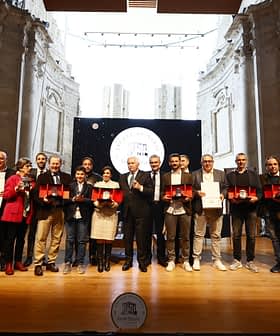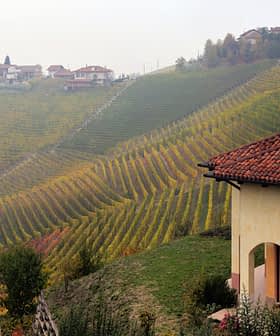Report Warns of White Collar Crimes and 'Mafia 3.0'
Threats to the olive oil sector are changing as white collar crimes become more prevalent, officials said.
The sixth edition of a report on organized crime in the food sector has been released after a year of joint work by Eurispes, Coldiretti, and the Observatory on Crime in Agriculture and on the Agri-Food System.
The annual report aims to predict changes and trends in the agri-food sector at a global level, providing an overview on the measures and methods of prevention and protection against fraud and other acts of deception.
Those who manage the criminal sector that intersects with the agri-food chain took off the ‘army clothes’ to wear the ‘suit.’
According to the former public prosecutor Gian Carlo Caselli, who chairs the scientific committee of the Osservatorio Agromafie Foundation, and the president of Eurispes, Gian Maria Fara, the phenomenon known as Mafia 3.0 is one of the leading challenges facing the sector.
“Those who manage the criminal sector that intersects with the agri-food chain took off the ‘army clothes’ to wear the ‘suit,’ succeeding in discovering and reaping the benefits of globalization, new technologies, economics, and finance,” the two said.
See Also:Olive Oil FraudWithin the context of more modern and complicated supply chains, criminal organizations are increasingly “more interested in developing cooperative businesses than in fighting each other,” the officials said.
The intelligent structure of the Mafia 3.0 is at the crossroads of various services required by different organizations, “accepting their financial resources in order to enhance and increase them through means that appear to be lawful.”
The agri-food sector is, therefore, an easy victim of conditioning and penetration. According to the report, Mafia 3.0 has experienced a 12.4 percent increase in annual turnover, with revenues rising to €24.5 billion per year.
“Being able to exercise control over one or more large buyers means being able to influence the production and, consequently, the price, as well as owning distribution chains or supermarkets makes it possible to determine the success of a product,” Fara and Caselli said.
In order to limit these agri-food rackets, the report recommended updating the legislation on agri-food.
However, scrutiny and regulations over the sector have increased in recent years. According to official statistics, Italy has become the leading reporter of suspicious activity to the Rapid Alert System for Food and Feed. Last year, the country filed 551 reports, equivalent to 14.4 percent of the total sent to the European Commission.
Overall, growing demand for transparency and quality of the production chain has led agri-food sector stakeholders to increasingly consider voluntary certification systems, in addition to those currently in force.
Among these is blockchain technology, which can be used to monitor every stage of the supply chain in real time.
The Agromafia report also shows that as technology evolves, new challenges arise. For example, a growing number of consumer have become more aware of the health benefits of certain food products, including olive oil. As a result, a proliferation of fake news and misinformation has followed in order to profit off of this healthy eating trend.
“What happens if a fundamental part of our lifestyle is strongly influenced by false information, circulating on the web and social media, having an impact on what we put on the table and, consequently, on the way we take care of our health,” Fara and Caselli asked.
Opinions of individuals can be affected to such an extent that the World Economic Forum has included fake news in the list of global risks.
The best way to defend against fake news is to always check the truthfulness of the information using various fact-checking websites as well as common sense and critical thinking, the report said.








